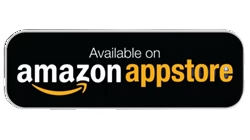If you’ve ever sat in an interview or filled out an application, you’ve probably been asked one of the most common yet tricky questions — “What are your strengths and weaknesses?” This question may seem simple, but answering it thoughtfully can make a big difference in how you’re perceived by employers, professors, or even your peers.
At ExpertsTeachers.com, we help learners not only gain technical skills but also master essential career-readiness and communication skills like answering interview questions with confidence. Understanding what are your strengths and weaknesses is the foundation of personal and professional growth.

Why Knowing Your Strengths and Weaknesses Matters
Before learning how to answer “what are your strengths and weaknesses”, it’s important to understand why it matters.
When you know your strengths, you can leverage them to achieve goals, lead projects, and excel in your work.
When you recognize your weaknesses, you can work on improving them, seek guidance, or find ways to manage them effectively.
Employers ask this question not to trap you, but to assess your self-awareness, honesty, and ability to improve — qualities that are highly valued in any career.
How to Identify Your Strengths
To answer “what are your strengths”, start by reflecting on your past experiences. Think about the moments when you achieved something significant or received positive feedback.
Common examples of strengths include:
- Communication Skills: Ability to express ideas clearly and confidently.
- Teamwork: Collaborating effectively with others.
- Problem-Solving: Finding creative solutions under pressure.
- Adaptability: Adjusting quickly to changes or challenges.
- Time Management: Balancing multiple responsibilities efficiently.
- Leadership: Motivating others and taking initiative.
When describing your strengths, always support them with examples. For instance, instead of just saying, “I’m good at teamwork,” you can say, “One of my strengths is teamwork. During a recent project, I collaborated with a cross-functional team to deliver the work ahead of schedule.”
This shows evidence and authenticity.
How to Discuss Your Weaknesses Professionally
Talking about weaknesses is often the hardest part of the question “what are your strengths and weaknesses.” The key is to be honest but strategic. Choose a weakness that is genuine but not something that disqualifies you from the role.
For example, instead of saying “I miss deadlines” or “I don’t like working in teams,” you could say:
“One of my weaknesses used to be public speaking. I often felt nervous addressing large groups, but I’ve been working on it by taking communication courses and practicing regularly.”
This type of answer shows self-awareness, willingness to learn, and growth mindset — all qualities that employers appreciate.
Tips to Answer the Question Confidently
When you’re preparing for interviews or professional evaluations, use these tips to handle “what are your strengths and weaknesses” effectively:
- Be Honest: Authenticity builds trust. Avoid cliché answers like “I’m a perfectionist.”
- Be Relevant: Choose strengths that align with the role or goal you’re pursuing.
- Show Progress: When talking about weaknesses, focus on improvement efforts.
- Practice Aloud: Rehearse your answer to sound natural and confident.
- Keep It Balanced: Mention one or two strengths and one weakness, followed by what you’re doing to improve.
Learn Professional Communication with ExpertsTeachers.com
At ExpertsTeachers.com, we offer a wide range of online courses designed to help learners succeed in both academic and professional environments. Whether it’s mastering communication skills, preparing for interviews, or developing personal growth strategies — our expert instructors guide you every step of the way.
Here’s why learners trust us:
✅ Step-by-step video lessons by industry professionals
✅ Practical assignments and real-life examples
✅ Lifetime access to all enrolled courses
✅ 30 Days Money Back Guarantee — absolutely risk-free
✅ 50% OFF on all courses with coupon code HAPPY50
If you’re preparing for interviews or career advancement, explore communication and soft-skills courses that teach you how to answer questions like “what are your strengths and weaknesses” with confidence.
Final Thoughts
Understanding what are your strengths and weaknesses isn’t just for interviews — it’s a valuable self-development tool. When you know what you excel at and what you can improve, you become more focused, confident, and adaptable in your career.
At ExpertsTeachers.com, we believe that personal growth and professional success start with self-awareness. Enroll in our career-oriented courses today, learn at your own pace, and enjoy 50% OFF with coupon code HAPPY50. If you’re not satisfied, you’re covered by our 30-day money-back guarantee — because your learning satisfaction matters most.


